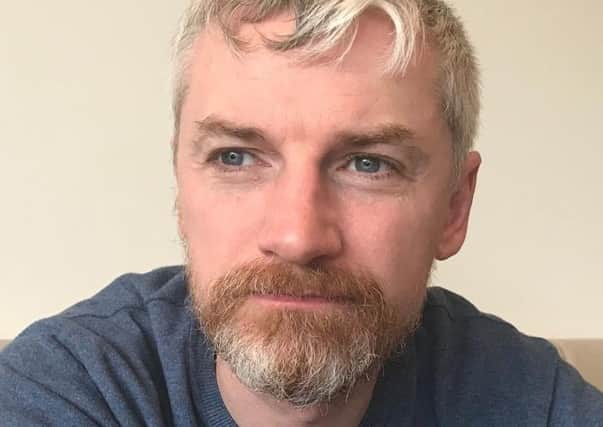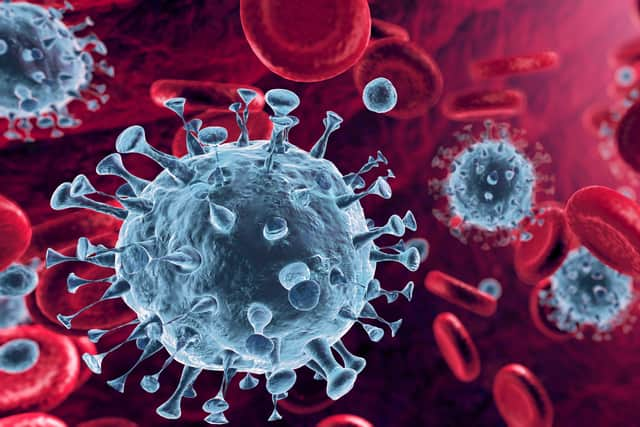Jonny McCambridge: The words seldom said during the public health crisis...I don’t know


I became immersed in the tale of how a brilliant intellect and career was wrecked by schizophrenia, how the resilience of the human condition allowed the academic to eventually rebuild his life from the depths of debilitating mental illness.
My dismal failure was this. I knew that Nash had won the Nobel Prize for his work on game theory, a conceptual mathematical framework used in computing how humans will behave in certain social situations. But when I tried to read the chapters which explained his research, I quickly became uncertain. I found the mathematical formulae impenetrable.
Advertisement
Hide AdAdvertisement
Hide AdThis frustrated me because I was only getting part of the story, making it impossible to fully appreciate Nash’s achievements. I read more widely about game theory, about how mathematical models of strategic interaction can be used to gain insight into the factors that govern chance and decision-making. But the deeper I read, the more hopelessly lost I became. Eventually I had to abandon it and accept the truth - I cannot understand game theory.


Which was a humbling admission. I tried to console myself with the thought that I am a creature of the arts, a mind that is defined by the flowing lines of stories, rather than by the hard edges of maths or science. A more blunt analysis may be that I am simply not intelligent enough to grasp game theory, I will just have to muddle through ignorant of it.
Which may seem an abstract point in usual circumstances. However, it did start a thought gnawing away about how useful it would be to have a working knowledge of science at a time when scientific considerations are shaping every part of society.
Like most others, a huge proportion of the mass media and literature I have consumed this year has been concerned with Covid-19, how it spreads, how it can be contained and how it has changed our lives.
Advertisement
Hide AdAdvertisement
Hide AdI have developed a working knowledge. I know that Covid is a form of coronavirus, that it causes respiratory illness, that it is highly contagious and spreads through droplets released into the air when an infected person coughs or sneezes. I can sustain a conversation about the virus with friends in a coffee shop (when they are allowed to open and I am permitted outside my bubble).
But I also know the truth is that my knowledge of the epidemiology, virology, clinical features and transmission is superficial. Often, in the conversations I have had, I have been left with the uneasy feeling that I am passing on opinions which I really can’t stand over.
One fallback is to simply leave it to the scientists and the medics, let those who understand it best explain it to us. But that is an imperfect solution as there is not yet an agreed universal narrative, comprehension is still evolving.
There is tension between the policy poles of reopening society versus maximising social isolation. Even where there is consensus, scientific direction then has to pass through a political prism, where other factors such as economic devastation and its health consequences are considered before it can become policy. Muddying the water even further is the abundance of folly and deliberate misinformation which exists.
Advertisement
Hide AdAdvertisement
Hide AdWhen faced with concepts which are difficult to grasp concerning a potentially deadly virus, it may be thought that caution in expression would be a preferred option, that there may be space left for acknowledgment that substantial questions without clear answers are being posed.
But that has largely not been what I have witnessed. In the shops, at the school gate, in the play park and in the coffee shops, I have been struck by the absolute certainty of the opinions offered. It has been even more pronounced on the airwaves, in political discourse and (of course) across social media where often the only thing that matches the utter confidence in expression, is the scorn for those who may have a divergent view. And, almost universally, the judgement handed down is exactly the one which you would expect that person to deliver given their political, economic, cultural or societal background.
To give an example, managing my life becomes easier when schools are open. Also, I am concerned about damage which has been caused to my son’s education through closures. There has been enough information released about the comparatively light impact of the virus on children for me to construct a basic working argument that there is no compelling reason to shut schools. And I believe I have made exactly that point in conversation on numerous occasions.
But I know that my opinion is being determined by my preferences, rather than science. Strip away my concerns about my son’s educational deficit and what is inconvenient for me and I can make no cogent case on medical grounds, can present no evidence or data, that schools should remain open. Really I have no idea which situation is most advantageous for public health.
Advertisement
Hide AdAdvertisement
Hide AdWhich leads me towards the declaration that is desperately unfashionable in these times when strong opinion is prized and ignorance mocked, the admission that I don’t know what is the best thing to do. I don’t know where the line ought to be drawn in deciding how much of our personal liberty should be given up and how much of our society and economy should be unpicked to contain the spread of this virus.
This intellectual humility does not mean that I do not have instincts or opinions, but I am aware of their limitations. Nor does it prevent me from being able to reason or follow an argument. In fact, admitting that I don’t have all the answers may be just the very thing that best ensures that I am able to learn and progress.
A message from the Editor:
Thank you for reading this story on our website. While I have your attention, I also have an important request to make of you.
With the coronavirus lockdown having a major impact on many of our advertisers — and consequently the revenue we receive — we are more reliant than ever on you taking out a digital subscription.
Advertisement
Hide AdAdvertisement
Hide AdSubscribe to newsletter.co.uk and enjoy unlimited access to the best Northern Ireland and UK news and information online and on our app. With a digital subscription, you can read more than 5 articles, see fewer ads, enjoy faster load times, and get access to exclusive newsletters and content. Visit https://www.newsletter.co.uk/subscriptions now to sign up.
Our journalism costs money and we rely on advertising, print and digital revenues to help to support them. By supporting us, we are able to support you in providing trusted, fact-checked content for this website.
Alistair Bushe
Editor